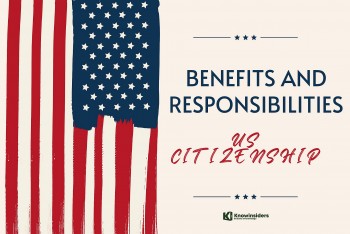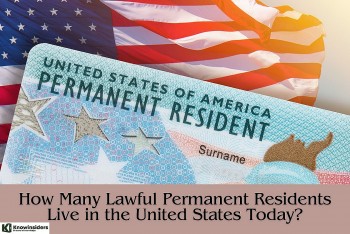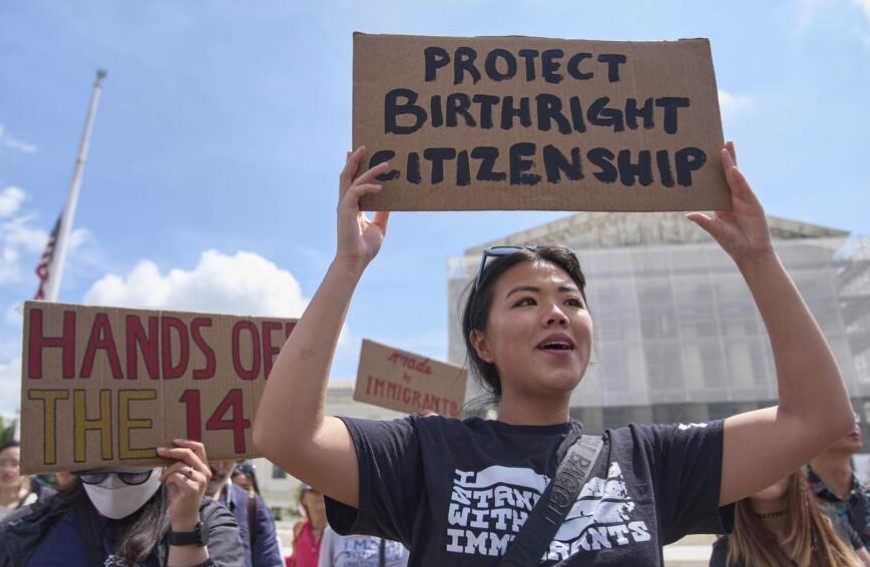Understanding U.S. Citizenship by Birth or Through a Parent
The United States has long been a beacon of opportunities and rights. Among the fundamental privileges it offers is citizenship, governed by constitutional and statutory frameworks. Understanding how citizenship is acquired—whether by birth in the United States or through a U.S. citizen parent—along with associated responsibilities such as tax obligations, is essential for individuals navigating U.S. law.
Learn more: Does a Child Born in the U.S. Automatically Gain U.S. Citizenship and a Passport?
 |
| Do children born abroad automatically receive U.S. citizenship |
U.S. Birthright Citizenship: President Trump's Executive Order and Subsequent Legal ChallengesOn January 20, 2025, President Donald Trump signed an executive order titled "Protecting the Meaning and Value of American Citizenship," aiming to end birthright citizenship for certain individuals born in the United States. This order stipulates that children born on U.S. soil will not automatically receive citizenship if neither parent is a U.S. citizen or lawful permanent resident. The order is set to take effect on February 19, 2025. In response, a coalition of 22 states, along with the District of Columbia and the city of San Francisco, filed lawsuits challenging the executive order. The plaintiffs argue that the order violates the 14th Amendment of the U.S. Constitution, which guarantees citizenship to all individuals born in the United States, regardless of their parents' immigration status. They contend that the President lacks the authority to unilaterally alter constitutional rights. Legal experts widely believe that the executive order will face significant challenges in the courts. The U.S. Supreme Court's 1898 decision in United States v. Wong Kim Ark affirmed that the 14th Amendment guarantees citizenship to virtually all individuals born on U.S. soil, with limited exceptions such as children of foreign diplomats. Therefore, any attempt to change this interpretation would likely require a constitutional amendment, a process that demands approval by two-thirds of both houses of Congress and ratification by three-fourths of the states. The outcome of this legal battle will have profound implications for the interpretation of the 14th Amendment and the future of birthright citizenship in the United States. As the situation develops, it remains crucial to monitor the judicial proceedings and their potential impact on U.S. citizenship laws. |
U.S. Citizenship by Birth in the United States
The foundation of U.S. citizenship for those born on U.S. soil lies in the 14th Amendment, Section 1, Clause 1 of the U.S. Constitution, which states:
"All persons born or naturalized in the United States, and subject to the jurisdiction thereof, are citizens of the United States and of the State wherein they reside."
This means that anyone born within the geographic boundaries of the United States—regardless of their parents' immigration or tax status—automatically becomes a U.S. citizen at birth.
Key Points to Note
- Location Matters: Birth within the 50 U.S. states, Washington, D.C., or certain U.S. territories like Guam, Puerto Rico, and the U.S. Virgin Islands confers citizenship.
- Exceptions: Children born to foreign diplomats accredited in the U.S. do not acquire U.S. citizenship by birth, as they are not subject to U.S. jurisdiction under international law.U.S. Citizenship Through a Parent
For individuals born outside the United States, citizenship can still be conferred at birth if specific criteria are met. This is governed by federal statutes rather than the Constitution.
Eligibility Criteria
To qualify as a U.S. citizen at birth through a parent:
- At least one parent must be a U.S. citizen at the time of the child's birth.
- The U.S. citizen parent must have lived in the United States for a certain period before the child’s birth.
- For instance, if the child is born to one U.S. citizen parent and one non-citizen parent, the U.S. citizen parent typically must have been physically present in the U.S. for at least 5 years, two of which were after the age of 14.
Important Steps
For those seeking confirmation of U.S. citizenship acquired through a parent:
- Visit the USCIS Citizenship Through Parents webpage for specific details.
- Obtain a Certificate of Citizenship by filing Form N-600 with USCIS, or apply for a U.S. passport using the parent’s documentation and proof of the parent’s U.S. citizenship.
 Understanding American Birthright Citizenship: History, Impact, and Controversies Understanding American Birthright Citizenship: History, Impact, and Controversies |
Responsibilities of U.S. Citizens: Tax Obligations
U.S. citizenship comes with responsibilities, including compliance with U.S. income tax laws. Unlike many other countries, the United States imposes worldwide taxation on its citizens, regardless of where they reside.
Who Needs to File?
U.S. citizens are required to file a Form 1040, U.S. Individual Income Tax Return annually if their gross income exceeds the filing thresholds outlined in the form’s instructions. This applies equally to citizens living abroad.
Additional Considerations for Citizens Abroad
- U.S. citizens residing outside the country may qualify for tax benefits such as:
- Foreign Earned Income Exclusion: Allows exclusion of up to a specified amount ($120,000 for 2023) of foreign earned income from U.S. taxation.
- Foreign Housing Exclusion or Deduction: Covers certain housing expenses incurred abroad.
- Foreign Tax Credit: Offers a credit for taxes paid to foreign governments, reducing double taxation.
- These benefits require proper documentation and forms, such as Form 2555 for foreign income exclusion or Form 1116 for the foreign tax credit.
Tax Filing Deadlines and Extensions
Standard Deadline
For calendar-year taxpayers, the standard due date for filing Form 1040 is April 15 of the following year.
Extensions for U.S. Citizens Abroad
- Citizens residing outside the U.S. on April 15 are automatically granted a 2-month extension to file, moving the deadline to June 15.
- Taxpayers can also request an additional 6-month extension (to October 15) by filing Form 4868, though interest may accrue on any unpaid taxes after April 15.
Payment Deadlines
While filing extensions are available, any taxes owed must be paid by April 15 to avoid interest charges, even if the filing deadline is extended.
Filing Requirements for U.S. Citizens Abroad
Where to File by Mail
-
Without Enclosing Payment:
Department of the Treasury
Internal Revenue Service
Austin, TX 73301-0215, USA
-
With Payment (Check or Money Order):
Internal Revenue Service
P.O. Box 1303
Charlotte, NC 28201-1303, USA
E-filing Options
- Taxpayers with an Adjusted Gross Income (AGI) of $79,000 or less may use Free File for electronic filing.
- Those with an AGI above $79,000 can use Free File Fillable Forms or purchase commercial tax preparation software. Certain software options accommodate foreign addresses.
 What is the U.S Citizenship: Benefits, Responsibilities And FAQs What is the U.S Citizenship: Benefits, Responsibilities And FAQs |
Tax Treaties and Benefits
The United States has income tax treaties with several countries to minimize double taxation. While treaties vary, common provisions include:
- Reduced tax rates on dividends, interest, and royalties.
- Mutual agreements to resolve residency disputes.
- Protections against certain types of double taxation.
It’s essential for U.S. citizens to consult the specific treaty between the U.S. and their country of residence for details.
Conclusion
For those navigating the legal and financial obligations that come with obtaining U.S. citizenship, whether through birth in the country or through a citizen parent, it is essential to comprehend the subtleties of the process. In order to lessen their financial burdens, U.S. citizens—especially those who reside overseas—must continue to adhere to their tax obligations while utilizing the exclusions, credits, and treaty benefits that are available.
For individualized advice, think about speaking with an immigration lawyer or tax expert if you have concerns regarding your citizenship status or tax obligations. To fully benefit from and fulfill the obligations of U.S. citizenship, one must remain informed.
FAQs
Q1: Do children born abroad automatically receive U.S. citizenship?
A: Not automatically. Citizenship depends on the parent meeting statutory requirements, such as sufficient prior residence in the U.S.
Q2: If I live abroad, am I still subject to U.S. tax laws?
A: Yes. U.S. citizens are taxed on their worldwide income, regardless of residency. However, benefits like the Foreign Earned Income Exclusion can help reduce tax liability.
Q3: Can I renounce my U.S. citizenship to avoid tax obligations?
A: While renouncing U.S. citizenship is possible, it involves a formal process, significant fees, and potential exit taxes for high-net-worth individuals.
 How To Become A US Citizen Based On Common Ways How To Become A US Citizen Based On Common Ways There are several advantages and obligations associated with US citizenship. There are easy ways to obtain US citizenship, which are listed below. |
 US Citizenship: Top 100+ Test Questions and Best Answers US Citizenship: Top 100+ Test Questions and Best Answers For many, obtaining US citizenship is the ultimate goal. You will be granted official US citizenship if you fulfill the requirements set forth by the ... |
 Permanent Residents in the US: Rights, Responsibilities, Limitations And Green Card Permanent Residents in the US: Rights, Responsibilities, Limitations And Green Card Lawful permanent residents are vital to the U.S. population's cultural diversity and economic strength. Understanding this group's data and dynamics is crucial for immigration policy ... |
 President Trump to End U.S. Birthright Citizenship for Children of Illegal Immigrants President Trump to End U.S. Birthright Citizenship for Children of Illegal Immigrants In a dramatic move set to redefine immigration policy in the United States, President Donald Trump will announce the end of birthright citizenship for children ... |


























